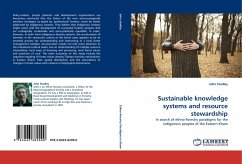Policy-makers, project planners and development organisations are becoming convinced that the failure of the new socio-ecologically sensitive strategies co-opted by 'professional' forestry could be better addressed by indigenous forestry. They believe that indigenous forestry might assist with the development of successful forestry projects that are ecologically sustainable and socio-politically equitable. In order, however, to learn from indigenous forestry systems, the acculturation of foresters in the vernacular culture of the forest users appears to be an essential process for understanding and intervening in a local forest management complex. Acculturation entails not only more attention to the immaterial cultural realm, but an understanding of multiple resource stewardship, local ways of knowing and perceiving, local forest values and 'practices of care'. The main outcomes of this study include the cognitive mapping of forest values among 'Tibetan minority nationalities' inEastern Kham, their spatial distribution and the coincidence of changes in forest values with cultural or biophysical phenomena.
Bitte wählen Sie Ihr Anliegen aus.
Rechnungen
Retourenschein anfordern
Bestellstatus
Storno








